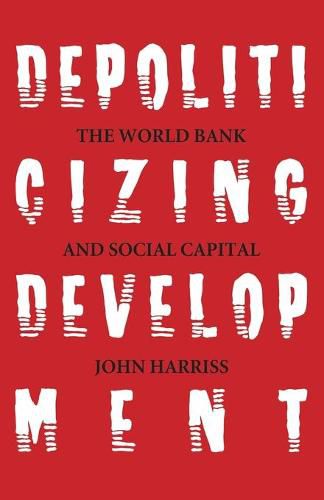Readings Newsletter
Become a Readings Member to make your shopping experience even easier.
Sign in or sign up for free!
You’re not far away from qualifying for FREE standard shipping within Australia
You’ve qualified for FREE standard shipping within Australia
The cart is loading…






This title is printed to order. This book may have been self-published. If so, we cannot guarantee the quality of the content. In the main most books will have gone through the editing process however some may not. We therefore suggest that you be aware of this before ordering this book. If in doubt check either the author or publisher’s details as we are unable to accept any returns unless they are faulty. Please contact us if you have any questions.
The idea of social capital – meaning, most simply put, ‘social connections’ – was unheard of outside a small circle of sociologists until very recently. Now it is proclaimed by the World Bank to be ‘the missing link’ in international development, and it has become the subject of a flurry of books and research papers, including some, recently, on India. This book explores the origins of the idea of social capital, and its diverse meanings, in the work of James Coleman, Pierre Bourdieu, and of Robert Putnam – who is responsible, more than any other, through his work on Italy and the United States, for its extraordinary rise. John Harriss then asks why this notion should have taken off in the dramatic way that it has done, and finds in its uses by the World Bank the attempt, systematically, to obscure class relations and power. Social capital has thus come to play a significant part in ‘the anti-politics machine’ that is constituted by the discourses of international development. This powerful and lucid critique will be of immense use to all those interested in development studies, including sociologists, economists, planners, and NGO and other activists.
$9.00 standard shipping within Australia
FREE standard shipping within Australia for orders over $100.00
Express & International shipping calculated at checkout
This title is printed to order. This book may have been self-published. If so, we cannot guarantee the quality of the content. In the main most books will have gone through the editing process however some may not. We therefore suggest that you be aware of this before ordering this book. If in doubt check either the author or publisher’s details as we are unable to accept any returns unless they are faulty. Please contact us if you have any questions.
The idea of social capital – meaning, most simply put, ‘social connections’ – was unheard of outside a small circle of sociologists until very recently. Now it is proclaimed by the World Bank to be ‘the missing link’ in international development, and it has become the subject of a flurry of books and research papers, including some, recently, on India. This book explores the origins of the idea of social capital, and its diverse meanings, in the work of James Coleman, Pierre Bourdieu, and of Robert Putnam – who is responsible, more than any other, through his work on Italy and the United States, for its extraordinary rise. John Harriss then asks why this notion should have taken off in the dramatic way that it has done, and finds in its uses by the World Bank the attempt, systematically, to obscure class relations and power. Social capital has thus come to play a significant part in ‘the anti-politics machine’ that is constituted by the discourses of international development. This powerful and lucid critique will be of immense use to all those interested in development studies, including sociologists, economists, planners, and NGO and other activists.